Any kind of cold plunge is impressive – but this diver has taken things to the next level.
Waldemar Bruderer, from Switzerland, has broken the world record for holding his breath while diving 56 metres (184ft) under ice.
The attempt took place in the frigid waters of Lake Sils in Graubünden, where the water was a freezing –1°C.
In a video, he can be seen diving into the icy water and using a guide line to swim down into the murky depths.
It took him two minutes and 47 seconds to complete – and broke the previous record by four metres.
‘The allure of the crystal–clear waters, the serenity of the underwater world, and the challenge of such an extreme environment captivated me,’ he told Guinness World Records (GWR).
The feat, which took place in February but has only recently been recorded on the GWR site, involved no fins or wetsuit, meaning Mr Bruderer was completely exposed to the elements.
‘I thrive on the idea of immersing myself in nature, experiencing it in its purest form,’ he said. ‘By minimizing equipment, I feel more connected to the elements and can truly appreciate the majestic underwater landscapes.’
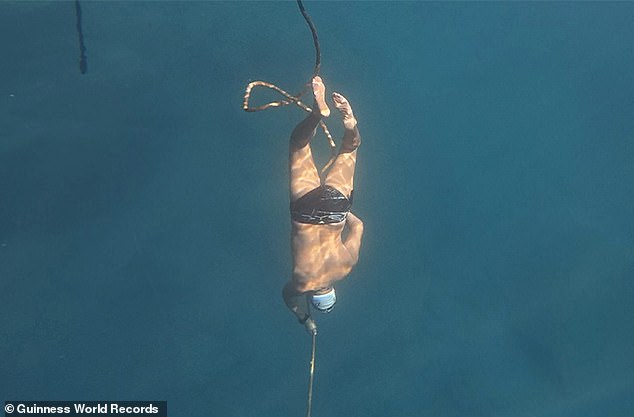
Waldemar Bruderer has set a new world record for holding his breath while diving under ice – without fins or a wetsuit
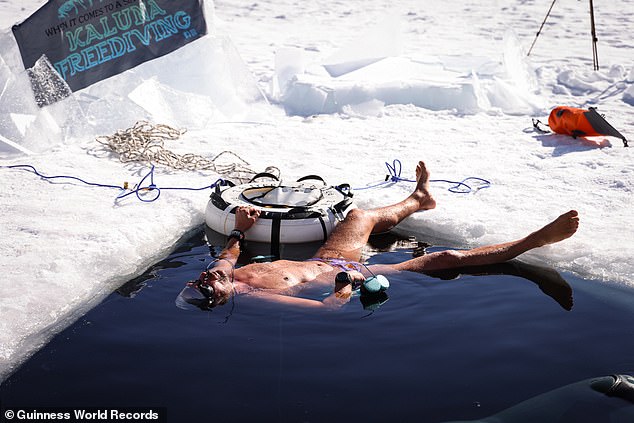
Mr Bruderer, a freediving instructor, said he hopes his new world record will raise awareness about climate change and the importance of protecting our glaciers
The lake itself is situated at around 1,800m (5,905ft) above sea level in the Swiss Alps – adding to the difficulty of the challenge by reducing the available oxygen.
Mr Bruderer, who is also a freediving instructor, said he hopes his new world record will raise awareness about climate change and the importance of protecting our glaciers.
‘Living in Switzerland, I witness first–hand the impact of climate change and the melting glaciers that define our landscape,’ he said.
‘This dive is not just a personal challenge; it’s a message that we must cherish and protect the natural world we inhabit.’
The previous record for a dive under ice without fins or a wetsuit was set in 2023 by Czech freediver David Vencl, who reached 52m (171ft) under the ice.
Meanwhile, the record for longest time breath held voluntarily underwater was also broken this year.
Vitomir Maričić, from Croatia, submerged his face beneath the water and floated in the same spot for an unbelievable 29 minutes 3 seconds in June.
He breathed pure oxygen for 10 minutes before his stunt – which put his breath hold on par with a harbour seal.
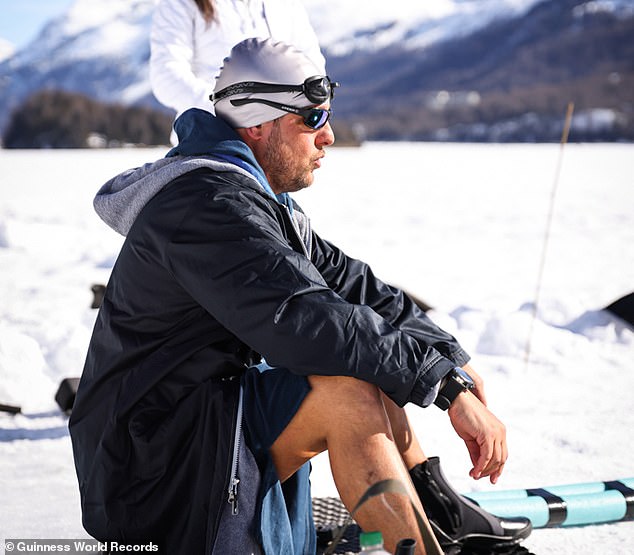
Freedivers practice relaxation techniques such as meditation, breath awareness and mindfulness to help maintain a calm mental state. Pictured: Mr Bruderer before his attempt
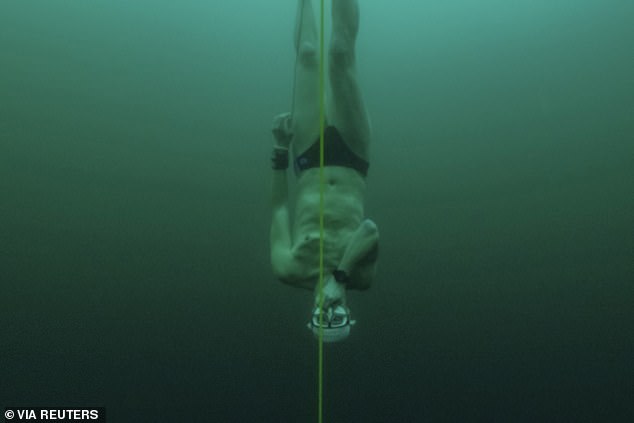
The dive has broken the previous record, set by David Vencl (pictured) in 2023, when he reached 52m (171ft) under the ice
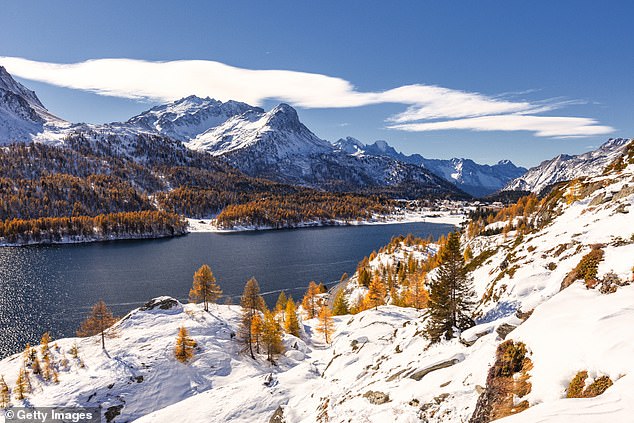
Picturesque Lake Sils is located high in the Swiss Alps, around 1,800m (5,905ft) above sea level
In a post on Instagram, he said: ‘It’s not about how much you inhale, it’s about how little you need.
‘No panic, no thoughts, just silence. That’s how you make it to 29.’
Mr Maričić, a member of Adriatic Freediving, broke the record of 24 min 37.36 sec by Budimir Šobat that had stood since 2021.
Before that, the record had been set by the magician David Blaine, who held his breath for 17 minutes and four seconds during a live broadcast on The Oprah Winfrey Show.
To complete their exceptional breath holds freedivers do intense cardiovascular training to steadily increase how much air they can store in their lungs.
The athletes practice holding their breath to desensitise their brains to the feeling of having high carbon dioxide and low oxygen levels.
This helps to delay the involuntary reflex to breathe again.
They also practice relaxation techniques such as meditation, breath awareness and mindfulness to help maintain a calm mental state.
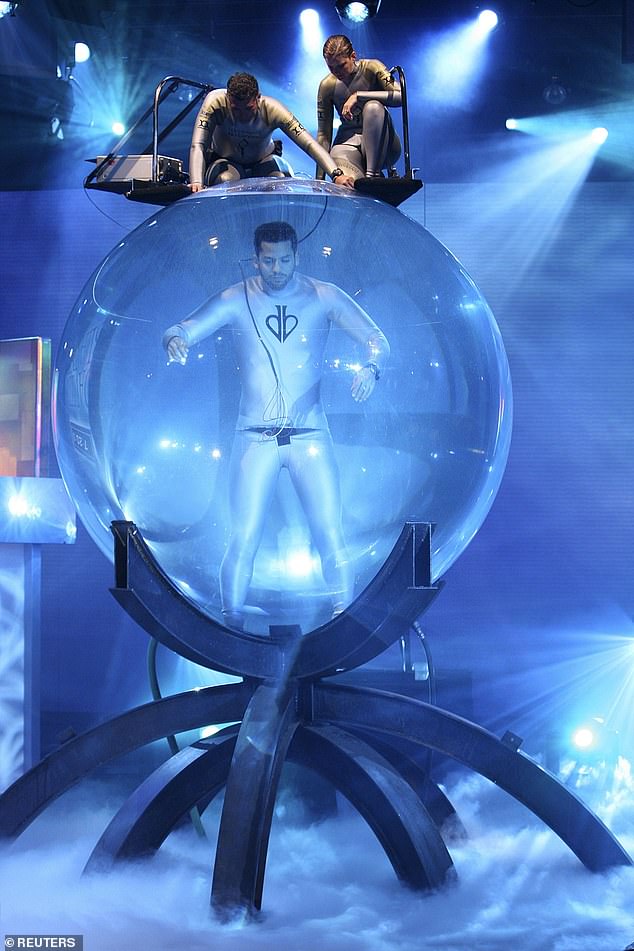
The first record for an oxygen–assisted breath hold was set by the magician David Blaine, who held his breath for 17 minutes during a live recording of The Oprah Winfrey Show
Slowing down their heart rate is also crucial to reduce the body’s oxygen consumption.
Harbour seals, for example, are able to slow their heartbeats from 100 beats per minute to just 10 while underwater.
Guinness World Record feats such as these take years of professional training and require proper guidance and safety.
A lack of oxygen and high carbon dioxide levels can quickly lead to loss of consciousness.
